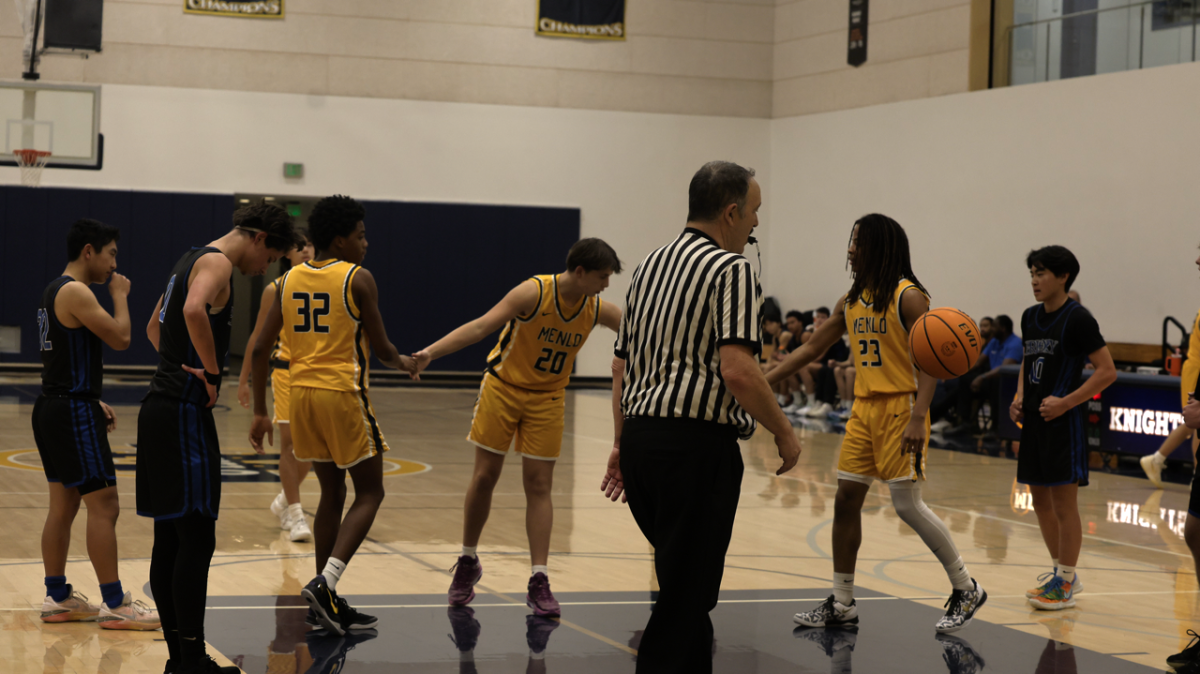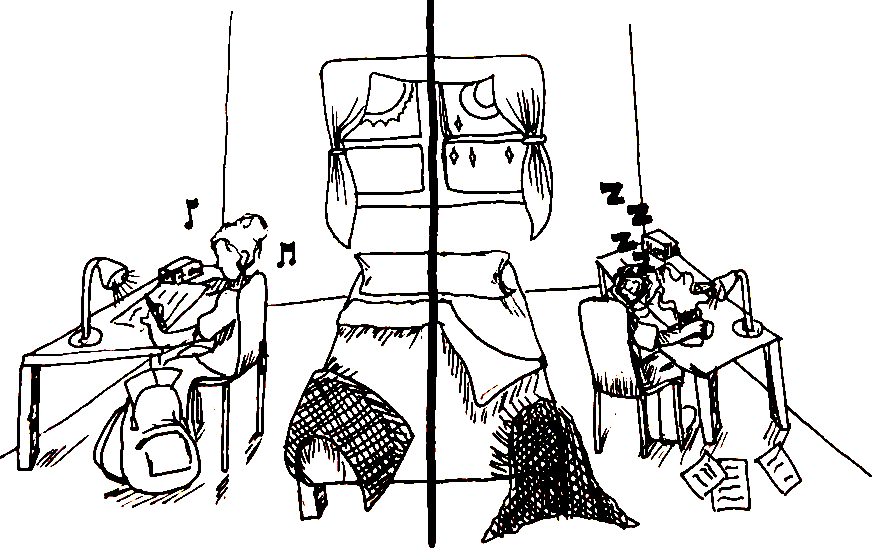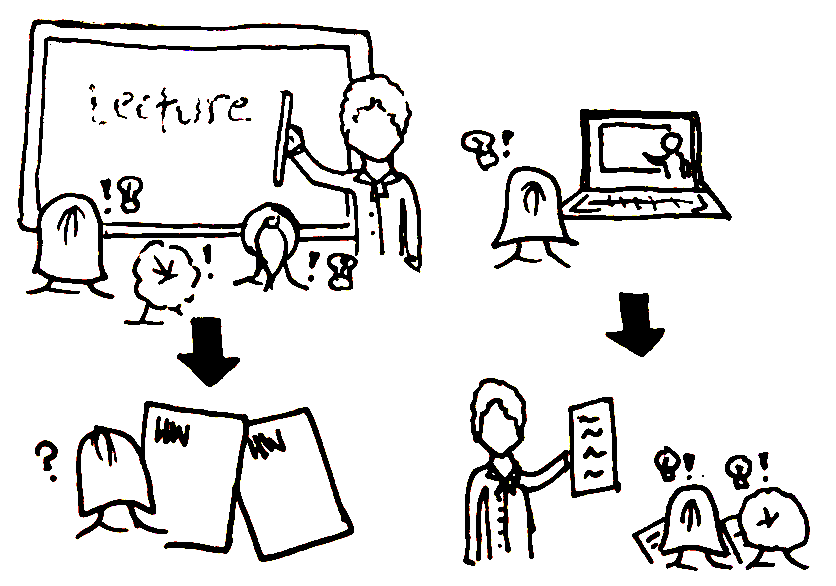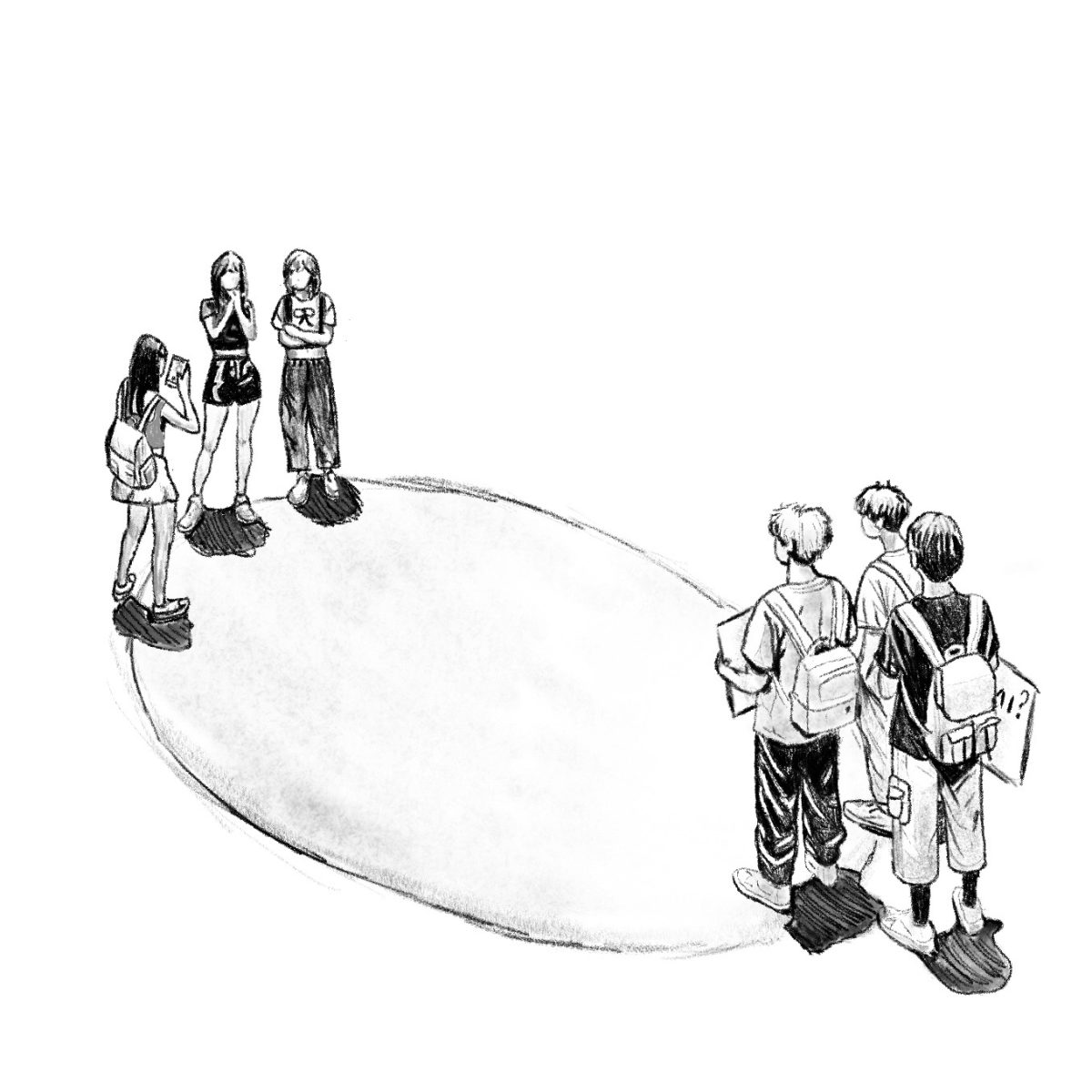For years, Menlo seniors have had the luxury of choosing from an array of special topics English electives for each semester of their final year. Conversely, juniors have faced a much narrower choice between three English classes: AP English Language, AP English Literature and English 3: Rebels. However, as Menlo has shifted away from AP classes, the junior English curriculum has undergone much more significant revamping than the rest of the ex-AP courses. And as a senior, I have to say: it’s about time these changes were made.
Rather than enrolling in one of the three year-round classes, juniors now spend their first semester in either Rhetoric Honors, Literature Honors or Literature. “Each of those [classes] will certainly have overtones and flavors and memories of what used to be AP Lang [and] what used to be AP Lit, [and the] third non-honors route happens to be in the flavor of literature,” English teacher and English Department Chair Rachel Blumenthal said.
For their second semester, however, juniors have the opportunity to join seniors in their electives. In these classes, upperclassmen study topics ranging from medicine in literature to Shakespeare to Paris in the 1920s. By offering a semester-long deep dive into a specific subject, students get a taste of academic independence without the intensity of a year-long AP course.
Admittedly, I have heard fellow seniors comment on the peculiarity of having mixed-grade English classes for the first time in our Menlo careers and at first found myself agreeing with them. However, there are various reasons why I am now in full support of this change — and you should be too!
Firstly, let’s face it. The second semester of junior year is notoriously rough. Juniors grapple with standardized test prep, college visits, extra emphasis on good grades and the general stress of an impending senior year. Previously, juniors might have chosen a class that didn’t excite them just to tick off another AP box, thus spending the whole year stressed out. Now, they have the opportunity to explore literary ideas that matter to them, making that tough semester a bit more manageable.
Secondly, when I was a junior and could only choose between the three full-year courses, it felt like the class I chose fit into a sort of hierarchy. It certainly seemed like the English class I chose said something about my academic ability, and that certain classes were universally considered more difficult than others. That’s where the real value of Menlo’s new English system for juniors comes in. It’s not about being the smartest or most accomplished. The new system focuses on what school should be about: learning for the sake of curiosity.
You may be wondering why, if this were the case, it would be beneficial for juniors to still take English classes that echo their AP Lang, AP Lit and English 3 predecessors in the first semester. Blumenthal said it best: “Think about the first semester as a bridge year between the foundations of ninth and 10th grade and the advanced English seminars of 11th and 12th grade.” The English department’s hope, Blumenthal explained, is that the first semester will bridge the transition from the introductory literary studies of English 1 and 2 to more independently-driven specialty classes.
Finally, us seniors get something out of the new system as well. We’ve all heard the term “inter-grade bonding” being thrown around recently, especially with the introduction of the student council’s new house system. But the term is more than just a buzzword. We seniors can take classes with juniors we wouldn’t have been able to interact with otherwise. Even better, these juniors who are in the class for the same reason as us: to engage in an English topic we care about. There’s something pretty special about a last-chance opportunity to connect with younger students and share a meaningful experience with them before we graduate.
In the end, Menlo’s new English system is a win for everyone. By breaking down grade-level barriers and offering more choice on what students study, these curriculum changes will enable Menlo to foster a more collaborative, curiosity-driven learning environment. And in a time where high school too often feels like a race to the top, that kind of freedom is something we can all appreciate.









